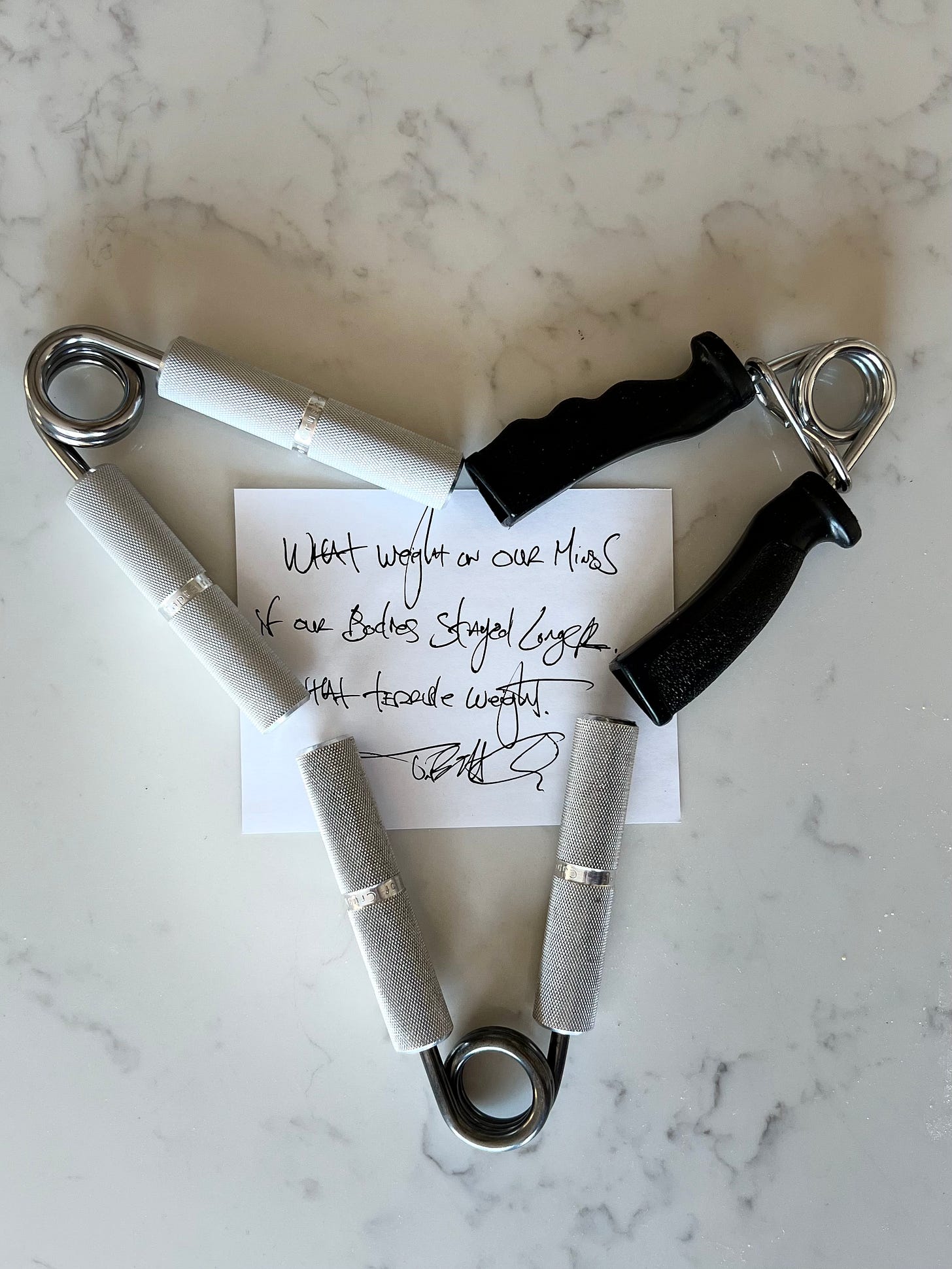A question eternal, one that passes back and forth from minds to lips to minds to lips, from philosophers to bridge builders, psychiatrists to scientists to presidents to protestors, a question simple:
Just because we can, does that mean we should?
The can, the should, could be six dozen things, six dozen more. The color it holds, the shape it takes, all change, but the two words that anchor us to indecision, to thought experiment, are the same. Can, and should.
This rattled around inside lately, this idea of the ability to do the thing being separate and completely autonomous from the justification of the actual doing. There are many things we can do, have learned or taught ourselves to be capable of, but many of them are, and will always remain, things we should not do. We can steal, it’s entirely possible to do this at a million turns in our lifetimes, but we should not. We can kill to prove killing is wrong, but should we? No.
An article that prompted probably the biggest question in my silly mind popped up the other day, and it shook me to the point of all that rattling. Some scientists, apparently believe, that with advances in technology, medicine, and the structures to help keep us healthier, there is a possibility that human beings will be able to live to 150 years old in the very near future. Some even believe the first human to reach 150 has already been born, is here, now, suggesting that these advances are going to come at a faster rate than previously anticipated. What’s more, according to some research, if this is to come true, it won’t look at all like it looks now, where from 75 to 100 we’re increasingly immobile, struggling with health issues, slower cognitive ability, and the like. Instead, they believe 80 will be similar to what 35 or 40 is now, and that the onset of what we currently accept as age-related slowdowns and maladies, will not come until the very end. Essentially, imagine being 35 years old now, feeling the way you do, except for actually being 85, or 90. THIS, my friends, is where the questions started pelting me like some late February blizzard.
It’s here, in this idea that our bodies can be 90 years old but still feel, act, and look as though we’re the current 35, that the can/should questions took over. I realized, that as a culture, we’re still plagued by a very important distraction of attention and importance, and to be honest, I don’t see that changing if we were to live even longer, stay young even later. We are body obsessed in this world, absolutely bonkers for the physicality of our species. We diet, we take strange pills, we inject toxins, we implant silicone, we dye, pluck, shape, tone, target, paint, and tweak every aspect of our humanity to look younger, skinnier, fitter, or less ravaged by the effects of time. We scan our insides, test our blood, listen to our lungs, and constantly monitor all that thumps and moves beneath our skin. Meanwhile, what focus is left for the mind, for our psyche, for our emotional state? Mental health is an aspect that gets overlooked and ignored more than any other. During, and even now that many declare the Covid Pandemic essentially over, thousands of studies were done on the cumulative physical affect Covid had on humans, but so few, so terribly few, were done on the toll it took on mental health.
Here is where my brain wandered, taking into account these unfortunate facts, when I read the article about living to be 150-years-old:
If our bodies stayed around so much longer, what terrible weight would be on our minds?
I say terrible for a few reasons, and by a few I mean literally hundreds that have come to light after the last half dozen years. I look backwards, since probably 2016, and I look at the unbelievable weight of stress we’ve all been carrying. I don’t know if everyone will agree, and that is ok, but I honestly cannot remember a more stressful decade in the entirety of my life. From Trump taking office and the immense political divide, to the rising threat of climate change and the weather/planetary related turmoil, to the protests and unrest from injustices long suffered, to the insurrections, to the pandemics, to the economic fallout, to the fears about everything from AI to TikTok to spy balloons to Russian war, to China’s involvement, to ten million other things, it’s fair to say it’s been really f’ing stressful. The weight of this has clearly taken physical tolls, and I think we’re just at the beginning of seeing the impact of those, but where I think the damage has been much worse, and much more hidden, is the mental and emotional component.
Speaking nothing of the overpopulation problem, as that’s an entirely different story, my question still remains…just because we maybe can live to be 150 or beyond, should we? What happens to a mind if it’s lived through 80 years of joy, pain, stress, elation, ache, sorrow, and fear? What happens if the inevitable decline and the merciful amnesia of old age doesn’t come at 80, or 90, but not for another 50 or 60 or 70 years? Can our minds hold the weight of 100 years of living, when our bodies will be tricked into thinking they are just over halfway through?
I don’t know these answers, but the idea frightens me. There are, as I mentioned, so many other implications of advancing the life expectancy to such lofty heights, and many others are pondering them, but for me it just comes back to the untested capacity of our own minds to carry such weights for such times. I Just don’t know, and I don’t know if I want to know, to be honest. Lifespan and “health span” are vastly different things, and I don’t believe there’s a point to the first without the correlating latter, but nowhere in there, it seems to me, is anyone studying the mental health aspect of this. I do not just mean the robustness of our synapses, or the ability for the mind to not get cognitive diseases, but the actual capacity of them, of our emotional response systems, for holding a century and a half worth of ache, stress, sadness, and yes, even joy.
Just because we can, does that mean we should? I don’t know, but it’s thought experiments like these that are moving rapidly out of the experimental or hypothetical and quickly into the “holy shit we are about to be able to do this, um, should we?” realm.
Help me here, why don’t you ring in, why don’t you offer me your insight?
Just because we can, do you think we should?
What weight on our minds
if our bodies stayed longer,
what terrible weight?














